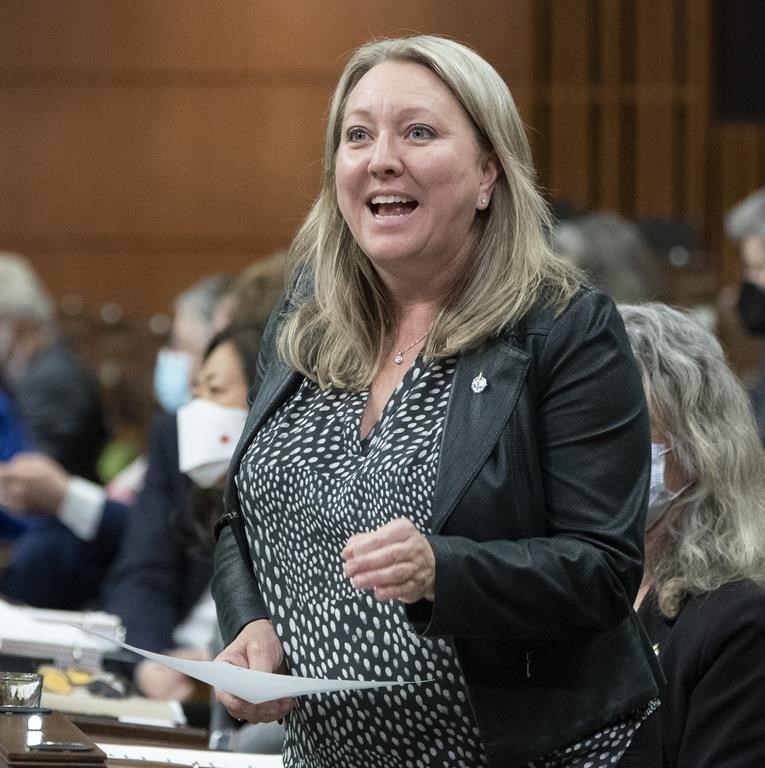OTTAWA — The Treasury Board is rejecting an idea pitched by some Indigenous public servants to offer "blanket exemptions" so they don't have to learn both of Canada's official languages.
A briefing note from last fall released to The Canadian Press under federal Access-to-Information shows senior officials responding to the exemption call coming from some members of the Indigenous Federal Employees Network.
Senior bureaucrats flagged a "growing tension" between Indigenous languages and official languages of French and English for some Indigenous employees. The note says the employees were "strongly asserting a blanket exemption."
The office of Treasury Board President Mona Fortier said in a statement this week that it's working with partners to explore options to address barriers public servants face in advancing their careers.
"A blanket exemption from official languages is not one," it read.
"We will never change the fundamental principle of bilingualism in the public service."
Under Canadian law, federal institutions must provide services in both languages and offer a bilingual working environment. However, some positions can be classified to allow employees to learn a second language through taking classes.
The requirement to work in French and English has in the past been identified as one of the major barriers faced by Indigenous public servants from advancing in their careers, including to some of the government's executive roles.
The briefing note listed some of the possible solutions officials discussed to eliminate those barriers including offering Indigenous language training to both Indigenous and non-Indigenous public servants, as well as potential exemptions if someone could speak an Indigenous language.
They suggested designing a pilot in Nunavut where jobs requiring an Inuit language wouldn't require an employee to be competent in a second official language.
Gina Wilson, a deputy minister and advocate for Indigenous public servants, wrote to colleagues last November saying she believed there was room for exemption, "if the individual speaks an Indigenous language."
Wilson is now the deputy minister of Indigenous Services Canada. She was the deputy minister for women and gender equality when she wrote the email.
In her email she cited the case of Governor General Mary Simon who is bilingual in Inuktitut and English.
"Then, we have the issue of who assesses the capacity of the Indigenous language speaker, but surely as a pilot we could figure that out," she wrote.
Officials proposed other ideas, like giving Indigenous employees more time to meet their second language requirement and compensating those who use their Indigenous language skills as part of their job, similar to the annual bonus employees receive who are bilingual.
This report by The Canadian Press was first published Aug. 18, 2022.
Stephanie Taylor and Michel Saba, The Canadian Press




